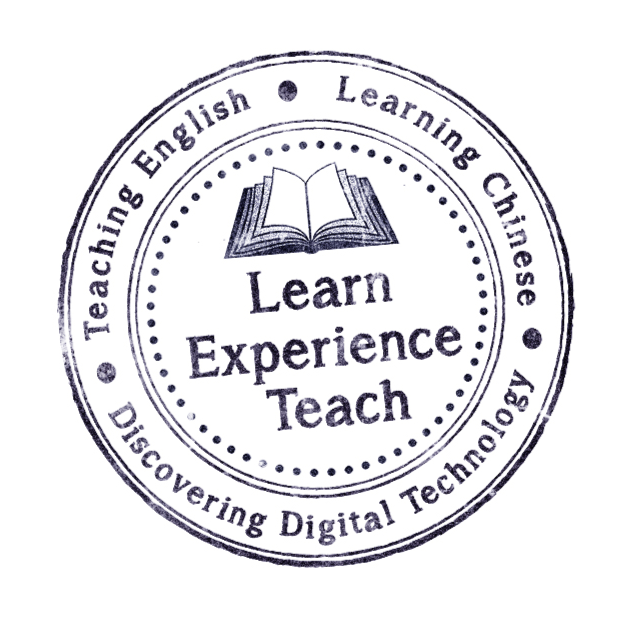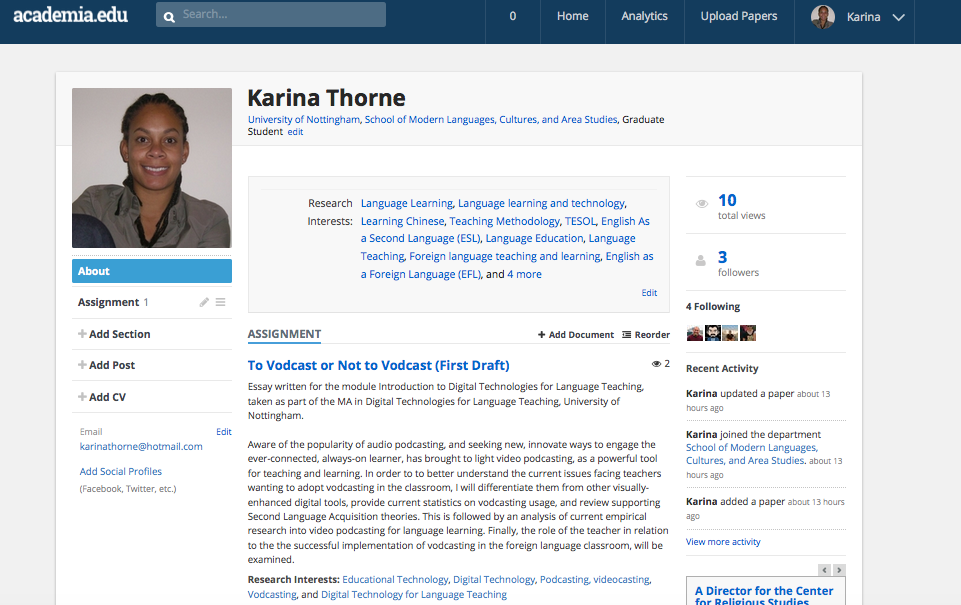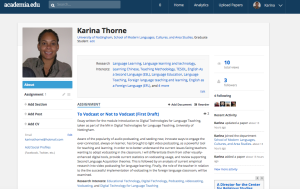Academia.Edu
To Vodcast or Not To Vodcast: Potential and Limitations in the Foreign Language Classroom is an essay written for the module Introduction to Digital Technologies for Language Teaching, taken as part of the MA in Digital Technologies for Language Teaching, University of Nottingham. If you are interested, please feel free to read this work in progress.
Abstract
Aware of the popularity of audio podcasting, and seeking new, innovate ways to engage the ever-connected, always-on learner, has brought to light video podcasting, as a powerful tool for teaching and learning. From a foreign language learning perspective, both audio, and video podcasting can provide authentic, culturally-rich, up-to-date materials for the enlightened teacher to manipulate into sizeable and appropriate, learning chunks. In addition to audio content, which may be paused, slowed down or replayed at the user’s convenience, video podcasts, also known as vodcasts, have the ability to engage the audience directly by incorporating still and moving visual images, which may contextualise dialogue and aid the transmission of culture. However, statistics show that vodcasts are less commonly utilised than podcasts by consumers, despite advances in the video capability of mobile devices. And they are still yet to become a staple part of language learning. In order to to better understand the current issues facing teachers wanting to adopt vodcasting in the classroom, I will differentiate them from other visually-enhanced digital tools, provide current statistics on vodcasting usage, and review supporting Second Language Acquisition theories. This is followed by an analysis of current empirical research into video podcasting for language learning. Finally, the role of the teacher in relation to the the successful implementation of vodcasting in the foreign language classroom, will be examined.



has brought to light video podcasting, as a powerful tool for teaching and learning.
Don’t quite understand this sentence. Is “Aware of the popularity of audio podcasting, and seeking new, innovate ways to engage the ever-connected, always-on learner,” the subject?
Yes, that fancy sentence is the subject.
A simple translation is: I know that listening to audio podcasts is very popular. And I know that students are always connected to the internet. So I want to find a similar, but new way, to get my student’s attention. Considering those factors, the idea I came up with is video podcasts.